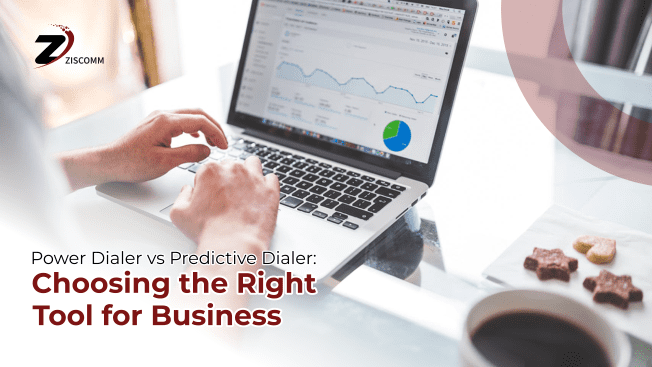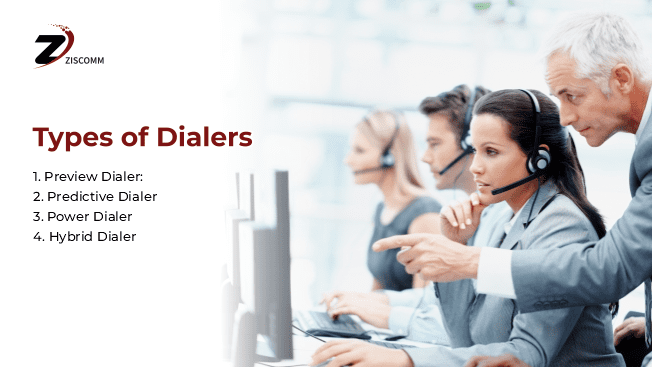
Introduction
Every call center feels the pressure to boost call volumes and agent productivity. With the right dialer, you can conquer daily targets while keeping your team focused and engaged. But, selecting between a power dialer and a predictive dialer isn’t a one-size-fits-all decision. This comprehensive guide will help you understand the differences between these two types of dialers, their features, benefits, and the scenarios where each excels.
What is a Dialer?
A dialer is an automated system used in call centers to place outbound calls. It significantly reduces the time and effort involved in dialing numbers manually, thus enhancing overall efficiency and productivity. Dialers come in various types, each suited to different business needs and operational scales.
Recommended: What is Call Center?
Types of Dialers

1. Preview Dialer
This type of dialer presents relevant contact information to agents before initiating the call. This gives agents the opportunity to review details such as the contact’s name, purchase history, and previous interactions. As a result, agents can prepare thoroughly and personalize their approach, leading to more meaningful and effective conversations. This is particularly useful for complex sales processes or technical support scenarios where having background information can significantly enhance the quality of the interaction.
2. Predictive Dialer
This advanced dialer leverages sophisticated algorithms to dial multiple numbers simultaneously. By analyzing real-time data and agent availability, it ensures that calls are made efficiently. The predictive dialer screens out busy signals, voicemails, and unanswered calls, connecting agents only when a live person answers. This method minimizes idle time for agents and maximizes their talk time, significantly boosting productivity. Ideal for high-volume call environments, predictive dialers help maintain a steady flow of live calls, ensuring agents are always engaged with prospects.
3. Power Dialer
This type of dialer automatically dials numbers sequentially from a preloaded contact list. It connects agents immediately once a call is answered, eliminating the need for manual dialing and reducing downtime. Power dialers skip over unanswered calls and voicemails, allowing agents to focus solely on live interactions. This results in increased call volume and enhanced agent productivity. Power dialers are particularly effective for small to medium-sized teams where maintaining a personal touch and ensuring high call quality are essential.
4. Hybrid Dialer
This versatile dialer combines the best features of both predictive and preview dialers, offering a blend of flexibility and efficiency. It automatically dials numbers based on predictive algorithms, ensuring minimal idle time for agents, while also presenting contact information before connecting the call. This allows agents to prepare for conversations with relevant background details, enhancing personalization and engagement. By leveraging the strengths of both dialing methods, hybrid dialers are ideal for businesses that need to balance high call volumes with the quality of customer interactions, adapting seamlessly to various campaign needs.
Recommended: 11 Advantages of Call Centers
Understanding Power Dialers
What is a Power Dialer?
A power dialer automates the process of dialing phone numbers from a predetermined list. It dials one number at a time and connects the agent only when the call is answered, effectively eliminating the downtime associated with manual dialing. This ensures a steady flow of calls, maximizing the time agents spend talking to prospects.
Key Features of Power Dialers
1. Automated Dialing
This feature allows the power dialer to automatically dial numbers from a contact list without requiring manual input from the agents. By automating the dialing process, agents can focus on engaging with live calls rather than spending time dialing numbers manually. This leads to increased efficiency and productivity as the dialer seamlessly moves from one call to the next.
2. Call Monitoring
This feature enables supervisors to listen in on live calls for quality assurance purposes. By monitoring calls, supervisors can ensure that agents are following the proper protocols, maintaining high standards of customer service, and adhering to compliance regulations. This real-time oversight helps in identifying areas for improvement, providing immediate feedback to agents, and enhancing overall call quality and performance.
3. CRM Integration
This feature allows the power dialer to seamlessly sync with Customer Relationship Management (CRM) systems. By integrating with CRM software, the dialer can automatically track and log call details, such as call duration, outcomes, and notes. This integration ensures that all customer interactions are documented in one central location, making it easier for agents to access relevant information, manage leads, and follow up on previous conversations. It enhances efficiency and helps maintain a comprehensive record of all customer interactions.
4. Voicemail Drop
This feature allows agents to leave pre-recorded voicemail messages when calls go to voicemail. Instead of spending time recording a new message for each unanswered call, agents can select a pre-recorded message to be automatically played. This saves time and ensures consistent messaging. Voicemail drop enhances productivity by allowing agents to quickly move on to the next call while still ensuring that important information is communicated to potential customers.
Recommended: What Does Inbound and Outbound Call Center Mean?
Benefits of Power Dialers
1. Increased Efficiency
Power dialers significantly reduce the time agents spend manually dialing numbers, allowing them to focus more on actual conversations with customers. This automation streamlines the calling process, ensuring that agents can move seamlessly from one call to the next without unnecessary delays. The result is a more efficient workflow, higher call volumes, and greater overall productivity.
2. Higher Agent Productivity
By automating the dialing process, power dialers ensure that agents spend more time talking to customers and less time on repetitive tasks. This maximizes their active engagement time, allowing them to handle more calls and connect with more prospects throughout their shift. The increased focus on live interactions leads to higher productivity and better performance outcomes.
3. Improved Call Quality
Power dialers allow agents to have brief moments between calls, giving them time to quickly review customer information and prepare for the next conversation. This preparation time helps agents personalize their approach, address specific customer needs, and deliver more effective and meaningful interactions. As a result, the quality of each call improves, leading to better customer experiences and higher satisfaction rates.
4. Cost-Effective
Power dialers streamline the workflow and increase call volume, which can lead to a higher return on investment. They achieve this without necessitating extensive training or the implementation of complex systems. Because power dialers are user-friendly and easy to integrate with existing processes, businesses can quickly deploy them, reduce operational costs, and achieve greater efficiency. This makes power dialers an affordable solution for boosting productivity and call center performance.
Recommended: 23 Call Center Smart Goals
When to Use a Power Dialer?
Power dialers are ideal for smaller teams or businesses with moderate call volumes. They are particularly effective in industries where personalized customer interaction is crucial, such as sales, customer service, and debt collection. If your primary goal is to increase the number of meaningful conversations without overwhelming your agents, a power dialer is a suitable choice.
Understanding Predictive Dialers
What is a Predictive Dialer?
A predictive dialer takes automated dialing to the next level by using algorithms to dial multiple numbers simultaneously and predict agent availability. It connects answered calls to agents and skips unanswered calls or those that reach voicemail. This system minimizes idle time and maximizes agent talk time, making it ideal for high-volume call environments.
Key Features of Predictive Dialers
1. Simultaneous Dialing
Predictive dialers use sophisticated algorithms to dial multiple numbers simultaneously. This ensures that agents are continuously connected to live calls, minimizing idle time and maximizing efficiency. By dialing several numbers at once, predictive dialers increase the likelihood of reaching a live person quickly, keeping the workflow steady and productive.
2. Call Prediction
Predictive dialers utilize advanced algorithms to forecast when agents will become available. By analyzing real-time data on agent activity and call durations, these algorithms adjust the dialing rate to ensure that calls are placed just as agents are wrapping up their current conversations. This predictive capability helps maintain a smooth flow of calls, reducing downtime and ensuring that agents are consistently engaged with live prospects.
Recommended: Blended Process Meaning in BPO
3. Voicemail Detection
This feature enables predictive dialers to automatically identify and skip calls that are answered by voicemail systems. Using advanced signal analysis, the dialer distinguishes between live human responses and voicemail recordings. By bypassing voicemail, the dialer ensures that agents are only connected to live calls, thereby maximizing their productive talk time and minimizing wasted effort on non-productive calls.
4. Real-time Analytics
Predictive dialers offer comprehensive real-time analytics, providing valuable data on call outcomes, agent performance, and overall campaign effectiveness. This feature allows managers to monitor key metrics such as call duration, connection rates, and agent talk time. By having access to up-to-the-minute information, supervisors can make informed decisions, optimize strategies, and provide timely feedback to agents. Real-time analytics enhance operational transparency and drive continuous improvement in call center performance.
Benefits of Predictive Dialers
1. Maximized Agent Talk Time
Predictive dialers ensure that agents spend the majority of their time engaged in conversations with live prospects rather than waiting for calls to connect. By dialing multiple numbers simultaneously and connecting agents only when a call is answered, predictive dialers significantly reduce idle time. This leads to a substantial increase in the amount of time agents are actively talking to customers, maximizing their productivity and effectiveness.
2. High Call Volume Handling:
Predictive dialers are designed to efficiently manage and process large volumes of outbound calls. By leveraging algorithms to dial multiple numbers at once and connect only the answered calls to agents, they streamline the calling process. This capability allows call centers to handle a significantly higher volume of calls compared to manual or less sophisticated dialing methods, ensuring that agents can reach more prospects in less time and enhancing overall operational efficiency.
3. Enhanced Performance Tracking
Predictive dialers provide detailed insights into various call metrics, offering a comprehensive view of performance at both individual and team levels. This includes data on call duration, connection rates, call outcomes, and agent talk time. By analyzing these metrics, managers can identify patterns, track progress, and pinpoint areas for improvement. Enhanced performance tracking allows for data-driven decision-making, helping to optimize strategies, enhance agent training, and ultimately improve the overall efficiency and effectiveness of the call
4. Advanced Call Routing
Predictive dialers employ sophisticated algorithms to route calls based on agent skills and availability. This feature ensures that each call is directed to the most suitable agent, enhancing the chances of a successful interaction. By matching calls to agents with the right expertise and ensuring they are available, advanced call routing maximizes resource utilization, improves customer satisfaction, and boosts overall call center performance. This targeted approach helps in handling calls more efficiently and effectively, leading to better outcomes and higher productivity.
Recommended: Improving Patient Satisfaction with Cloud-Based Call Center Solutions
When to Use a Predictive Dialer?
Predictive dialers are best suited for large call centers dealing with high call volumes. They are ideal for industries such as banking, finance, telemarketing, and healthcare, where the goal is to maximize the number of connections made in the shortest time possible. If your primary objective is to handle large-scale operations with maximum efficiency, a predictive dialer is the way to go.
Power Dialer vs Predictive Dialer: Key Differences
1. Call Handling
- Power Dialer: Dials one number at a time and connects the agent only when the call is answered.
- Predictive Dialer: Dials multiple numbers simultaneously and connects calls to available agents, screening out non-productive calls.
2. Agent Availability
- Power Dialer: Ideal for scenarios where personalized interaction is crucial.
- Predictive Dialer: Best for high-volume call environments needing maximum agent engagement.
3. Call Quality
- Power Dialer: Ensures higher call quality by allowing agents to prepare between calls.
- Predictive Dialer: Focuses on quantity, which may sometimes compromise call quality due to quick transitions.
4. Efficiency
- Power Dialer: Efficient for moderate call volumes with an emphasis on quality interactions.
- Predictive Dialer: Highly efficient for handling large call volumes rapidly.
How to Choose the Right Dialer for Your Business
1. Assess Your Call Volume
If your business handles a moderate call volume where personalized customer interaction is key, a power dialer might be the best fit. For businesses with a high call volume, a predictive dialer can ensure agents remain productive by continuously engaging with calls.
2. Evaluate Customer Interaction Quality
If the quality of customer interaction is a priority, opt for a power dialer. It allows agents more preparation time and reduces the pressure of handling back-to-back calls. For businesses where the goal is to reach as many contacts as possible in the shortest amount of time, a predictive dialer is ideal.
3. Consider Agent Experience
Less experienced agents may benefit from the slower, more controlled pace of a power dialer. Experienced agents who can handle rapid-fire calls efficiently will thrive with a predictive dialer.
4. Align with Business Goals
Align your choice with your business objectives. For instance, a sales-focused call center may benefit more from a predictive dialer, while a customer service-oriented call center might find a power dialer more suitable.
5. Hosting Options for Dialers
On-Premise
If hosting all software and hardware solutions on-premise is the cornerstone of your IT department’s policies, then your organization will likely be required to take the on-premise option for dialer hosting. This involves an upfront cost of purchasing the equipment, but ongoing costs are minimal.
Cloud-Based
A more flexible option is a cloud-hosted dialer. It can be more affordable as you only pay for your license on a month-to-month basis. There is also less responsibility for maintenance, no upfront costs, and scalability based on your needs.
Integration and Compliance
When choosing a dialer, consider its integration capabilities with your existing CRM systems. Seamless integration ensures easy access to customer data and efficient call management. Additionally, ensure the dialer complies with legal and regulatory requirements such as the Do Not Call (DNC) list and the Telephone Consumer Protection Act (TCPA) to avoid legal issues and protect customer data.
Advanced Features to Look For
- CRM Integration: Essential for syncing contact data and managing call campaigns efficiently.
- Call Analytics: Provides detailed insights into call performance, agent efficiency, and campaign success.
- Answering Machine Detection (AMD): Filters out non-productive calls, ensuring agents only connect with live prospects.
- Voicemail Drop: Allows agents to leave pre-recorded messages when calls go to voicemail, saving time.
- Dynamic Tagging: Enables audience segmentation based on filters for targeted campaigns.
- Call Recording and Monitoring: Aids in quality assurance and agent training.
Benefits of Combining Both Dialers
Some businesses may benefit from using both power and predictive dialers, depending on the specific needs of different campaigns. Solutions like JustCall offer both types of dialers, providing flexibility and allowing businesses to switch between modes as required. This approach ensures that you can handle varying call volumes and campaign types effectively.
Power Dialer vs Predictive Dialer: Final Thoughts
Choosing between a power dialer and a predictive dialer depends on your business’s specific needs. Assess your call volume, customer interaction priorities, agent experience, and business goals to make an informed decision. Both dialers offer unique advantages that can significantly enhance your call center’s efficiency and productivity.
Whether you need the precision and personalization of a power dialer or the high-volume efficiency of a predictive dialer, understanding their features and benefits will help you select the right tool for your business.
